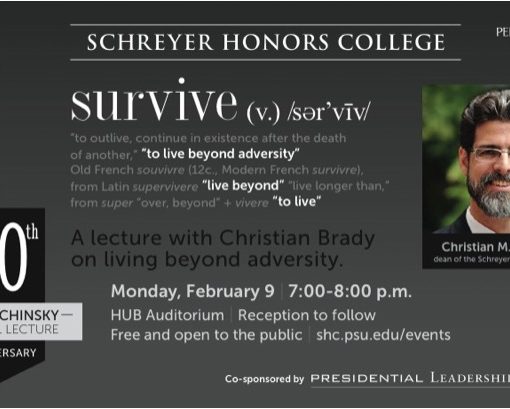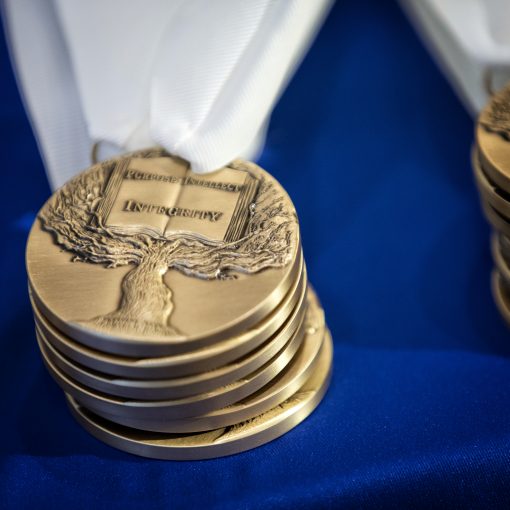The following is an essay I wrote this fall for publication on PublicUniversityHonors.com. The editor of that site reviews honors colleges and programs and the SHC was one of only seven to receive a five mortarboard rating in A Review of Fifty Public University Honors Programs. Time has passed so I am now happy to be able to post it on our blog!
“Honors programs and colleges are each as distinctive and unique as the college or university of which they are a part.” This is how I begin every presentation I make to prospective students and their parents. There is no one set definition of what an honors program is, other than that all programs have the general goal of enhancing and enriching a student’s academic experience. The mission, vision, character, nature, and experience of each program or college will vary widely even as they all achieve that single goal.
I have had the great pleasure to be the director Tulane University’s Honors Program and I am now in my tenth year as dean of the Schreyer Honors College at Penn State University. I have also been a part of and led reviews of numerous other honors programs and colleges around the country. This combination of intimate working experience and the opportunity to survey the national landscape has led me to the personal conviction that honors education should be built upon two pillars resulting in an “osmotic incubator.”
Osmotic
“Accessibility,” “permeability,” and “leaven” are all terms I have used to describe this attribute. I remained a pre-med student long enough to know that “osmosis” is the process by which molecules can pass through a membrane from one region to another. Honors education may be thought of in these terms, to a certain extent, taking in students at different stages while at the same time the college should be making contributions to the rest of the university.
In the Schreyer Honors College (SHC), as in all programs, resources are limited and therefore so is the number of students we can enroll. At Penn State we are able to enroll up to 300 first-year students as Schreyer Scholars. The total first-year enrollment at Penn State [all campuses] is nearly 20,000 students so this represents a very small percentage of the whole. It is the nature of honors programs that they are small in size so that the impact upon the students can be maximized, but that makes it all the more imperative that they be a mechanism for taking in students after their first year.
The “Gateway” entrance to the SHC was already in place at Penn State long before my arrival and it is an excellent solution to the challenge of finding the right size for an honors college. Students who have achieved a minimum GPA of a 3.7 may apply for admission into the SHC and in this manner those students who only “hit their stride” once in college can also have access to the benefits of an honors experience.
Aside from financial concerns, the primary constraint for any honors program is ensuring that our students will have the faculty support and direction they need. The Gateway selection is determined by the student’s major department; thus the department is able to ensure that they do not accept more students than they can supervise and support through their academic career, which culminates in an honors thesis.
I also believe that this egalitarian approach is in keeping with the ethos of Penn State, a land-grant institution that remains committed to the mission of providing access to education for all citizens of our commonwealth. Through the Gateway process we are able to recognize those students who have had a stellar academic career since arriving at Penn State and give them an opportunity further to excel.
This osmotic property of honors education should not be limited to enrollment. We also strive to have a positive impact in the Penn State community, moving outwards into the rest of the university. I believe that honors education should never be a “cloistered” community, set aside with few coming in and even less going out. Rather we seek to collaborate with colleges, institutes, programs, and student organizations to make a real and positive impact on our community. When we invite major speakers, such as last year when we hosted Earvin “Magic” Johnson for our Shaping the Future Summit, we set aside a dinner or reception for a smaller group of students and faculty, but the primary event is always for the entire community, both within Penn State and our geographic region.
The same is true in terms of pedagogy. Small honors courses with committed students allow for faculty to try out new and different learning and instruction techniques. We also make sure that once our honors students have enrolled in courses, any available seats in honors classes are available to all students at Penn State. They have to meet the same standards as our honors students, but they also receive the same education in the classroom. This is often how many of our Gateway Scholars begin their honors path at Penn State. Honors classes are also often the site of great innovation that benefits the entire university. This role of being a test-bed leads to my second pillar of honors education: we should be the incubator of innovation within the university.
Innovative Incubator
The concept of a tech or business “incubator” is known to most by now. These are programs, communities, or groups that provide the resources and capital necessary for entrepreneurs to move their ideas to products. We have a student organization at Penn State that strives to be just such a place for our students, Innoblue. I am their adviser, but a number of Scholars, both alumni and current students, are a part of this exciting enterprise. This concept is also how I view our role in education, “to improve educational practice and to be recognized as a leading force in honors education nationwide” (from the SHC Vision statement).
Honors education is a place where we, our students and faculty, can experiment, try different teaching methods, subjects, and curricula. This can happen because we have a great combination of engaged and creative faculty and highly motivated students. Our small size means that we can be nimble. Our faculty can try something new, knowing that our students will be able to give them instant, critical, and valuable feedback. If it works, great! We have a new course or program. If not, that is OK as well. We will have the information needed to know whether we can simply tweak it and get it right or if it really is not going to work after all. Finally, if it really works and is scalable we can take that to the rest of the university and everyone will be enriched.
This is what I believe honors education should be, an “osmotic incubator” that allows for great ideas and people to flow through enriching not only our students but our entire community. It makes for an exciting environment, full of new and nimble minds with committed and excited participants. In other words, it is why I love my job.



